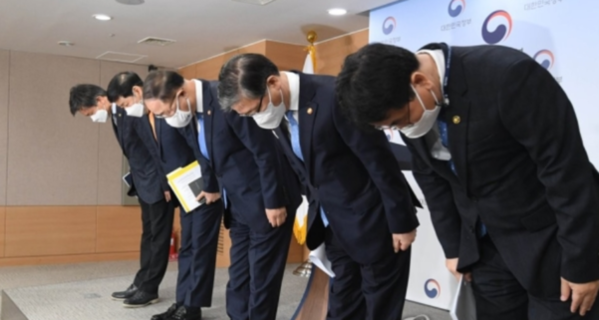Input 2021.03.08 17:00
Some point out that in the context of controlling information, it is necessary to change the method of designating housing districts and developing them in a short period of time. This is because the speculation controversy can be reduced only by developing housing districts in a situation where information is widely disclosed.

The government and the ruling party are looking to raise the level of sanctions by clarifying the standards of punishment or sanctions. Representative Moon Jin-seok, together with Democratic Party lawmakers, proposed a bill that imposes a fine of 3 to 5 times on speculative profits. In addition, there is a discussion that public officials and officials in public institutions who are in positions related to the designation of housing districts or compensation work should not be allowed to purchase land.
However, experts believe that even if regulations are tightened, it will be difficult to prevent speculation. This is because there is no way to stop the moral hazard that he believes that’if it doesn’t take it, it won’t be a problem’ just by strengthening regulations. In the end, it means that it will be left to the individual’s conscience.
Professor Shim Gyo-eon of Konkuk University’s Department of Real Estate said, “Even if you buy land under the name of yourself or your immediate family and do not make unreasonable profits, it is speculation that you can borrow the name of an alumni, etc.” “I said.
Many experts point out that it is necessary to change the basis of the current housing supply system, which is under the premise of ▲information closure ▲state-led ▲partial sacrifice of private property for the public benefit.
First of all, there are voices that the private-led supply should be activated rather than the public-led housing supply. The public should focus on the construction of rental housing for low-income people who do not have a proper living environment, and the regulation should be relaxed so that the private sector can autonomously take part in other supply including housing sales. This is contrary to the 2·4 countermeasures, where the main focus was the content that the public should lead when redeveloping and rebuilding.
Professor Kwon Dae-jung of the Department of Real Estate at Myongji University said, “We must respect the role of the private sector in housing supply. LH is committed to supplying rental housing to the socially underprivileged, but this should not lead to confinement to private redevelopment and reconstruction.” Professor Kwon added, “As much as housing supply, housing welfare is an important concept. However, as housing supply is constantly being led by the public, various problems are emerging.”
There is a strong voice that the system for designating residential land and land expropriation and compensation should also be changed in a closed situation. It is said that it should be changed to an advanced country type that discloses information and persuades landlords one by one. Until now, the logic that Korea’s rapid growth in a short period of time and the exercise of private property may be partially restricted for the public benefit has been greatly strengthened.
However, following this logic, there are both people who make profits by investing in land with undisclosed information, and land owners who receive compensation for having real land and not meeting expectations. In the past, during the period of rapid growth, there were not many cases that led to social controversy, but now the situation has changed as it has reached the ranks of advanced countries.
Professor Shim Gyo-Eon said, “If you see that the land speculation problem, which was likely to occur only in the 1970s and 1980s, reoccurs, it seems necessary to reconfirm that there are no areas to improve in the land expropriation system.” “The land acceptance and cash settlement system promoted by Korea was a system that should have disappeared as we became an advanced country.”
An adjunct professor at the Department of Finance and Real Estate at Yonsei University’s Graduate School of Political Science and Economics of Hanmundo said, “The new city development system that the government announces unilaterally and promotes in a short period of time is fundamentally wrong.” I had it, but now it’s time to change it,” he said.
